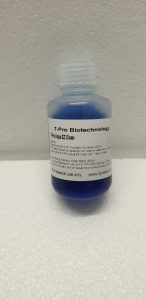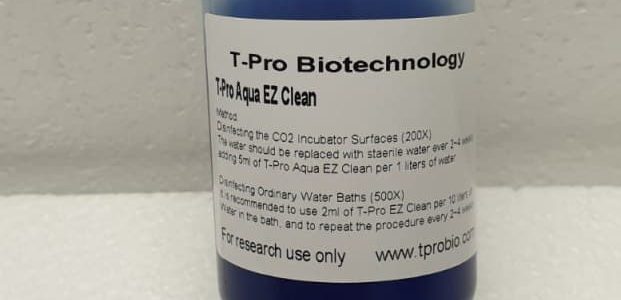Few histological prognostic indicators for end-stage renal disease (ESRD) have been validated in diabetic patients. This biopsy-based research aimed to determine nephropathological danger components for ESRD in Chinese patients with type 2 diabetes. Histological options of 322 Chinese type 2 diabetic patients with biopsy-confirmed diabetic nephropathy (DN) had been retrospectively analysed. Cox proportional hazards evaluation was used to estimate the hazard ratio (HR) for ESRD. Single glomerular proteomics and immunohistochemistry had been used to determine differentially expressed proteins and enriched pathways in glomeruli. During the median follow-up interval of 24 months, 144 (45%) patients progressed to ESRD. In multivariable fashions, the Renal Pathology Society classification did not predict ESRD, though the solidified glomerulosclerosis (rating 1: HR 1.65, 95% confidence interval [CI] 1.04-2.60; rating 2: HR 2.48, 95% CI 1.40-4.37) and extracapillary hypercellularity (HR 2.68, 95% CI 1.55-4.62) had been identified as unbiased danger components.
Additionally, single glomerular proteomics, mixed with immunohistochemistry, revealed that complement C9 and apolipoprotein E had been extremely expressed in solidified glomerulosclerosis. Therefore, solidified glomerulosclerosis and extracapillary hypercellularity predict diabetic ESRD in Chinese patients. Single glomerular proteomics identified solidified glomerulosclerosis as a singular pathological change which may be related with complement overactivation and irregular lipid metabolism.Certain substances known as allergens, induce hypersensitivity (allergic reactions) which usually are thought-about to be innocuous, are small in dimension and incite IgE response. This research was centered to foretell the putative allergens from different Cucurbitaceae members of the family using computational strategy by analyzing the already reported allergens of the identical household.
The 4 reported allergens Cuc m 1, Cuc m 2, Cuc m three and Citr I 2 of Cucurbitaceae household had been obtained from International Union of Immunological Societies, in which three had been from Cucumis melo (Muskmelon) and one from Citrullus lanatus (Watermelon) respectively. BlastP evaluation reported 44 related sequences to those allergens from different members of Cucurbitaceae household specifically Cucurbita moschata, Cucurbita pepo and Cucurbita maxima. The allergenicity of those sequences was predicted using AlgPred instrument in which it revealed 26 protein sequences as putative allergens. These chosen sequences had been additional analyzed for his or her physicochemical properties using ProtParam instrument in which 13 sequences had been discovered to fulfill the required parameters, and due to this fact additional analyzed by AllerMatch™ and AllergenOnline instruments to verify the Codex Alimentarius guidelines for allergens. Finally, 13 sequences that had been chosen had been structurally analyzed for similarity using PROMALS3D instrument and phylogenetic relationship was established with the reported allergens using MEGA-X software program. It was concluded that 13 sequences from Cucurbitaceae household belonging to totally different species of Pumpkin confirmed potential allergenicity primarily based on the computational evaluation that probably can play a task in allergy symptoms and cross reactivity.
Fungal survival beneath temperature stress: a proteomic perspective

Disruptive Innovation in Dentistry: What It Is and What Could Be Next
Dentistry is a technically oriented career, and the well being care sector is considerably influenced by the ever present development of digitalization. Some of those digital developments have the potential to outcome in disruptive adjustments for dental apply, whereas others might turn into only a pipedream. This Discovery! essay focuses on improvements constructed on synthetic intelligence (AI) because the center-technology influencing 1) dental eHealth knowledge administration, 2) scientific and technical well being care purposes, and three) providers and operations. AI methods allow personalised dental medication workflows by analyzing all eHealth knowledge gathered from a person affected person. Besides dental-specific knowledge, this additionally contains genomic, proteomic, and metabolomic data and due to this fact facilitates optimized and personalised remedy methods and danger administration.
[Linking template=”default” type=”products” search=”magnetic beads proteomics C18″ header=”1″ limit=”124″ start=”3″ showCatalogNumber=”true” showSize=”true” showSupplier=”true” showPrice=”true” showDescription=”true” showAdditionalInformation=”true” showImage=”true” showSchemaMarkup=”true” imageWidth=”” imageHeight=””]
Based on the facility of AI, the triangular body of “knowledge”/”well being care”/”service” is supplemented by technological developments in the sector of social media, Internet of issues, augmented and digital actuality, fast prototyping, and intraoral optical scanning in addition to teledentistry. Innovation continues to be crucial to sort out dental issues till its routine implementation primarily based on sound scientific proof. Novel applied sciences should be seen critically in relation to the cost-benefit ratio and the moral implications of a deceptive analysis or remedy produced by AI algorithms. Highly delicate eHealth knowledge should be dealt with responsibly to allow the immense advantages of those applied sciences to be realized for society. The concentrate on patient-centered analysis and the event of personalised dental medication have the potential to enhance particular person and public well being, in addition to make clear the interconnectivity of disease in a cheaper means.
